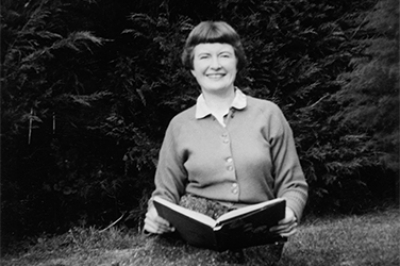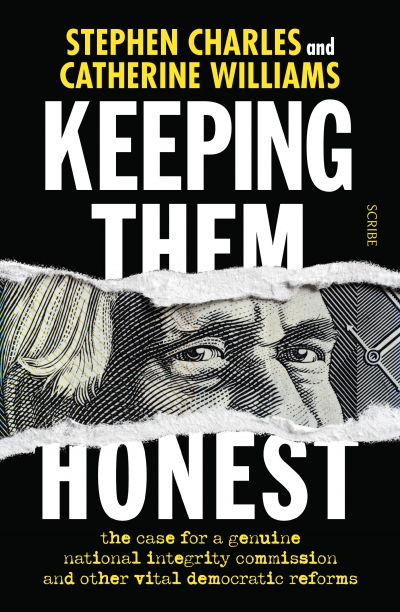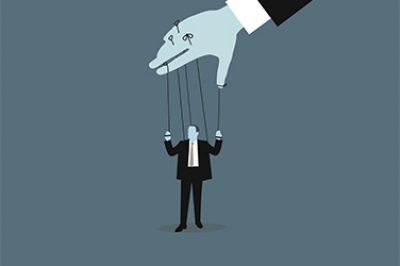Commentary
When Ann-Marie Priest wrote to me in 2015 asking whether she might talk to me about her proposed biography of my mother, and requesting my permission to examine some correspondence in the Fryer Library, which I, as Gwen Harwood’s literary executor, had placed on restricted access, I replied with a terse refusal to cooperate. Since my mother’s death in December 1995, I had kept tight control of her vast correspondence, nearly all of which she had donated to various research libraries over the last two decades of her life, and I saw no reason to change my ways.
... (read more)A deadpan comedian maintains a straight face or an even tone while delivering ridiculous content. As a performance of humourlessness that makes people laugh, deadpan registers tensions in contemporary culture. Comedy is among the most popular modes of entertainment and social commentary: the Melbourne International Comedy Festival, for example, is Australia’s largest ticketed cultural event, with attendances of up to 770,000. But over the past few years, criticism of comedy’s traditional reliance on stereotypes and its misogynistic and homophobic industry conditions has intensified as high-profile comedians (Bill Cosby, Louis C.K.) were denounced or tried for sexual misconduct and as a new generation of ‘woke’ comedians have engaged with a resurgent cultural earnestness, often disparaged as ‘PC humourlessness’.
... (read more)In Australia today, many young people are actively engaged in politics. While adults often describe young people as disengaged, apathetic, or uninformed about politics, these perceptions and labels do not align with the reality. As Judith Bessant has pointed out, ‘[T]here is a long and rich history of political action by children and young people’ (Making-Up People: Youth, truth and politics, Routledge, 2020).
... (read more)Keeping Them Honest: The case for a genuine national integrity commission and other vital democratic reforms by Stephen Charles and Catherine Williams
One of the most important pieces of public interest journalism in recent times, and one with direct relevance to Australia, was written from a prison camp east of Moscow in 2021 by Russia’s de facto opposition leader, Alexei Navalny, incarcerated by the Putin government after its failed assassination attempt on him (Guardian, 20 August 2021). During his imprisonment, Navalny had identified a pattern in the memoirs of world leaders. Integrity was never mentioned in their accounts of ‘big agenda’ policy successes, only failures. The argument that pervasive corruption in the government of Afghanistan explained the failure of Western intervention there is one example. Navalny said the pattern invited an obvious question.
... (read more)Earlier this year, Ray Hadley was interviewing Scott Morrison on 2GB when the subject turned to the internal preselection battles of the Liberal Party in New South Wales. ‘And so it’s time for those who, you know, don’t do this for a living, to really allow those who really need to get on for the sake of the Australian people here,’ Morrison declared, none too coherently.
... (read more)The Godfather, the first instalment of Francis Ford Coppola’s three-part mafioso epic, premièred fifty years ago last month. Released in March 1972, The Godfather became a huge commercial success. By year’s end it was the highest-ever grossing film. And despite its brutal and salacious content, and its pulpy source material – which may help explain its attraction to moviegoers – it was a critical success. Pauline Kael, writing in the New Yorker, described it as ‘a great example of how the best popular movies come out of a merger of commerce and art’.
... (read more)On the first day of March this year, Scott Morrison declared his commitment to democratic principles. ‘My government will never be backward when it comes to standing up for Australia’s national interests and standing up for liberal democracy in today’s world,’ the prime minister told reporters. ‘We can’t be absent when it comes to standing up for those important principles.’ It was a deeply hypocritical statement from a leader who has overseen raids on journalists, the prosecution of whistleblowers, and the degradation of transparency mechanisms at the heart of our democracy. Standing up for important democratic principles is just about the opposite of what the Morrison government has done, domestically at least, in recent years. The secrecy-shrouded prosecution of Bernard Collaery makes that abundantly clear.
... (read more)In 1976, the Australian government signed an agreement with one of the leading universities in the world, Harvard, to fund a visiting professorial position in Australian Studies. Originally conceived by the government of Gough Whitlam, the gift of US$1 million was a token of Australian goodwill to the United States on the bicentennial celebration of the American Revolution. Its purpose was to promote increased awareness and understanding of Australia by supporting teaching, research, and publication.
... (read more)It was, inevitably, in a Zoom meeting that I first noticed the phrase. A colleague, excusing some minor oversight, explained it away with the words: ‘Sorry, Covid brain fog.’ Although I hadn’t consciously registered the expression before, I knew exactly what she meant.
... (read more)When the Morrison government decided in December 2019 to axe the federal arts department and to fold it into the department of infrastructure, transport, regional development, and communications, it was a strong signal – if another was needed – of the low esteem and influence the arts wields in Canberra. But it shouldn’t have come as a surprise. The decision was made just months after the 2019 election campaign, when the Liberal Party offered no arts policy, and Labor only a nominal one. The depressing news came on the back of a decade of crisis and neglect for the sector, well before the spectre of Covid wreaked havoc for many artists and performers.
... (read more)









